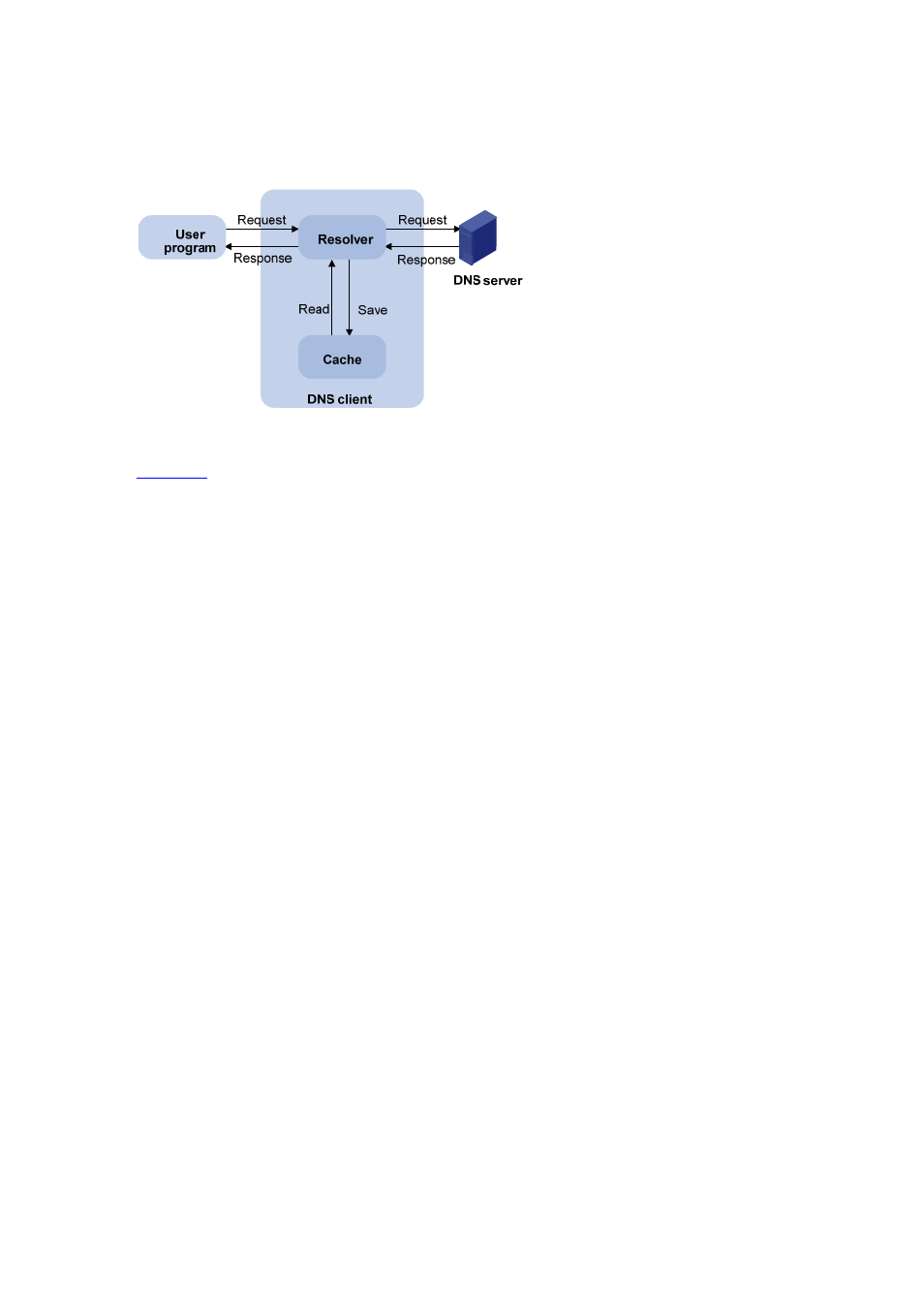Dns suffixes – H3C Technologies H3C S3600 Series Switches User Manual
Page 1120

1-2
3) The DNS server looks up its DNS database for a match. If no match is found, it sends a query to a
higher-level DNS server. This process continues until a result, success or failure, is returned.
4) The DNS client performs the next operation according to the result.
Figure 1-1 Dynamic domain name resolution
shows the relationship between user program, DNS client, and DNS server.
The resolver and cache comprise the DNS client. The user program and DNS client run on the same
device, while the DNS server and the DNS client usually run on different devices.
Dynamic domain name resolution allows the DNS client to store latest mappings between name and IP
address in the dynamic domain name cache of the DNS client. There is no need to send a request to the
DNS server for a repeated query request next time. The aged mappings are removed from the cache
after some time, and latest entries are required from the DNS server. The DNS server decides how long
a mapping is valid, and the DNS client gets the information from DNS messages.
DNS suffixes
The DNS client normally holds a list of suffixes which can be defined by users. It is used when the name
to be resolved is not complete. The resolver can supply the missing part (automatic domain name
addition). For example, a user can configure com as the suffix for aabbcc.com. The user only needs to
type aabbcc to get the IP address of aabbcc.com. The resolver can add the suffix and delimiter before
passing the name to the DNS server.
z
If there is no dot in the domain name, such as aabbcc, the resolver will consider this as a host
name and add a DNS suffix before processing. The original name such as aabbcc is used if all
DNS lookups fail.
z
If there is a dot in the domain name, such as www.aabbcc and aabbcc., the resolver will directly
use this domain name to do DNS lookup first. If the lookup fails, the resolver adds a DNS suffix for
another lookup.
